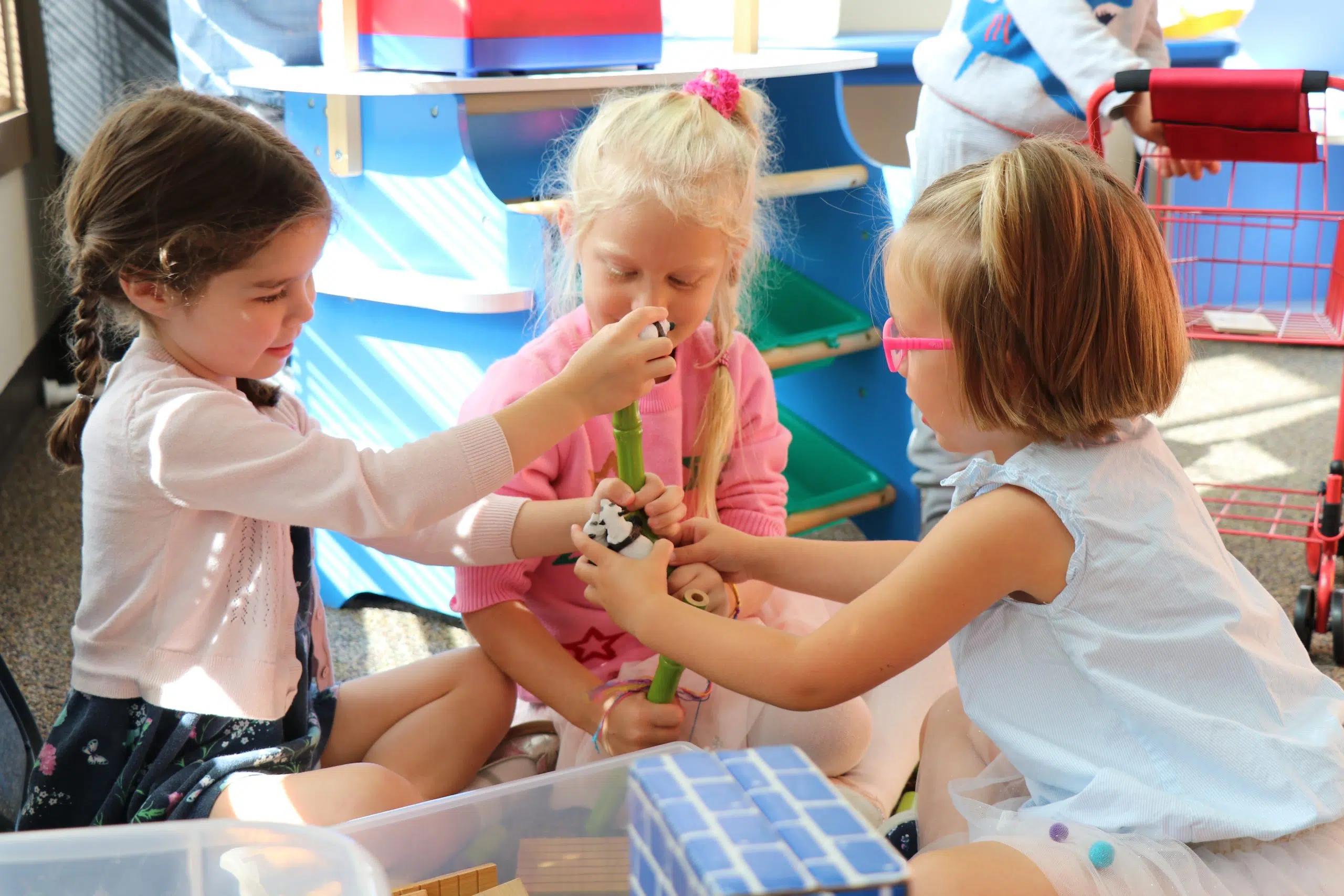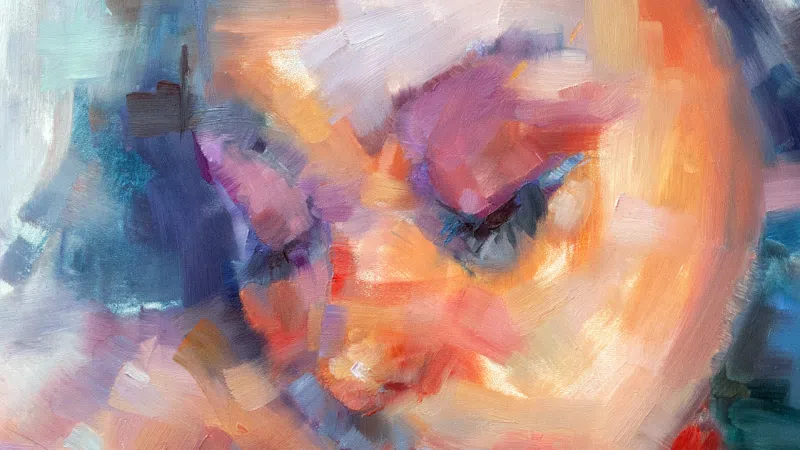In this quickly changing world, we need innovators more than ever. We need people who are creative problem solvers and adaptable collaborators. How do we develop those abilities in our young children? There are three key areas parents and educators of young children can focus on to create innovators: Creativity, Problem Solving, and Collaboration. Let’s explore some of the important Dos and Don’ts of each of these.
This content is sponsored by The Bear Creek School.
Creativity
Time and Space with Creative Materials

Credit: Bear Creek School
Surround your children with materials that allow them to explore, construct, problem solve, and invent. These creative materials can be either indoor or outdoor materials. Examples: Duct tape, cardboard, paper, boxes, small sticks, wire, foam.
Push through some initial responses of “this is boring” or “I don’t know what to do.” Sometimes it takes a bit to slow the brain down from our fast paced, interactive world to get the creative juices flowing.
Encourage your child to talk about not only “what” they built but “how” they went about the process. Be a patient and interested listener.
Focus on asking questions rather than giving suggestions.
Don’t be afraid to let things get messy and stay messy for a while. This one is hard for me and maybe for some of you. I prefer a place for everything and everything in its place. But creativity may take some compromise in this area. One suggestion is to find a place in the house where you don’t mind things getting messy and close it off from your normally neat and orderly areas.
Reading Stories
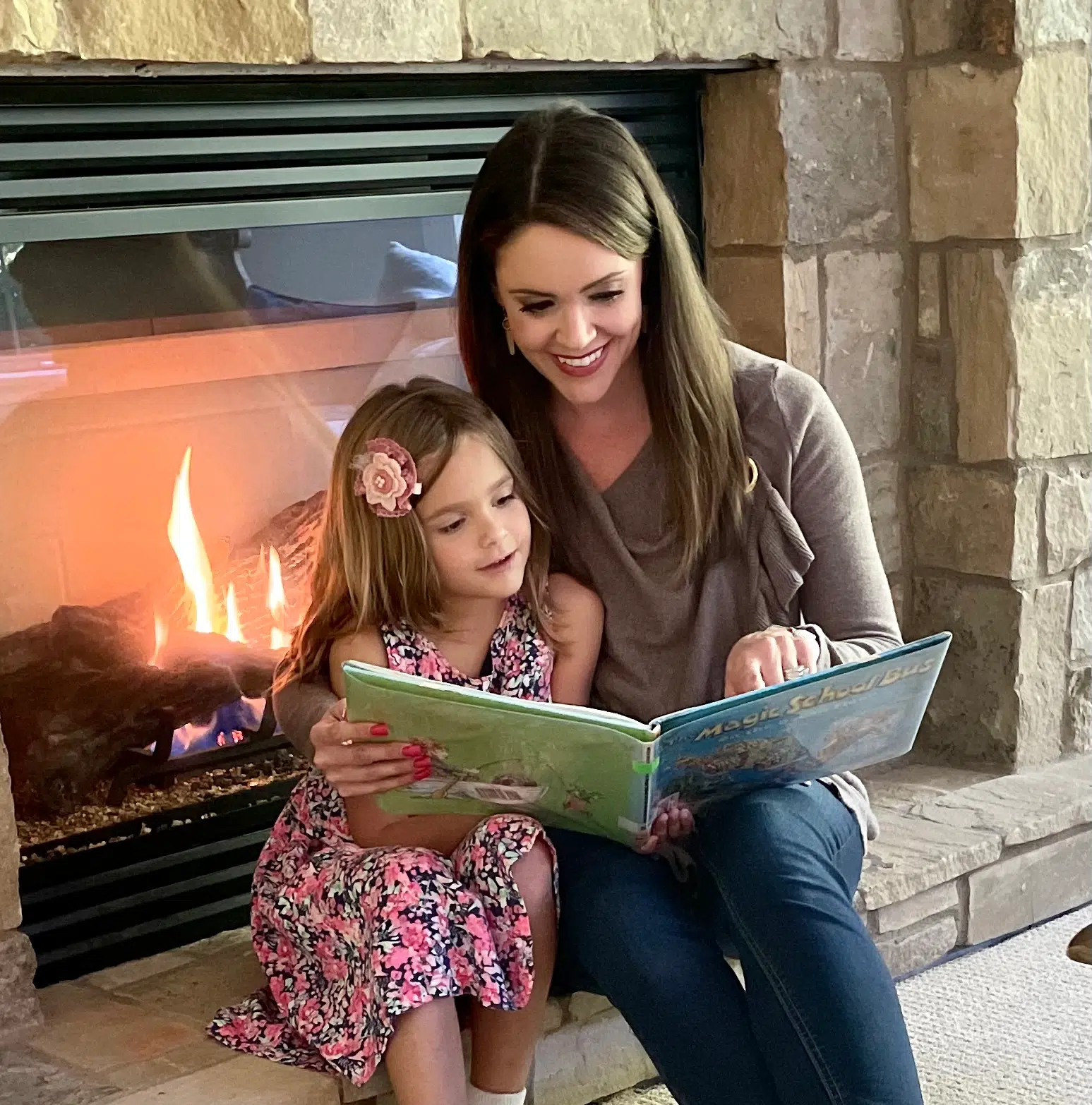
Credit: Bear Creek School
Reading is still one of the most important things you can do with young children and it definitely contributes to creativity. Through books children can travel to other worlds, imagine possibilities, and consider ideas from other perspectives.
If you are not already in the habit of a daily reading time, make a commitment to fit it into your daily routine at a standard time each day.
Model creative thinking with your children while reading. Share your thinking out loud with statements like “I wonder if…” or “That makes me think…”
Problem Solving
More Than One Way to Do It
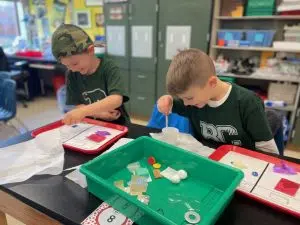 Preschool and kindergarten students are very open to creative thinking when solving problems. By grade 1 we already see students begin to shut down in creativity as they become more convinced there is one right answer and one way to do it. This can inhibit their openness to problem solving.
Preschool and kindergarten students are very open to creative thinking when solving problems. By grade 1 we already see students begin to shut down in creativity as they become more convinced there is one right answer and one way to do it. This can inhibit their openness to problem solving.
To nurture creative problem solving try asking questions whenever various options are acceptable. For instance, instead of saying:
“So you don’t forget your jacket, put it by the door.”
Try saying:
“Where could you put your jacket that would help you not to forget it?”
When children are constructing, cooking, or building, and run into obstacles avoid telling them how to solve the problem. Instead, ask them what ideas they have to solve the problem. Then give them freedom to explore the possibilities, even if you don’t think it will work.
Praise c for pursuing creative solutions as much, or more, than you praise them for the results. Encourage the trial and error process by putting emphasis on diligence, persistence, and creativity.
Collaboration
Practice by Play
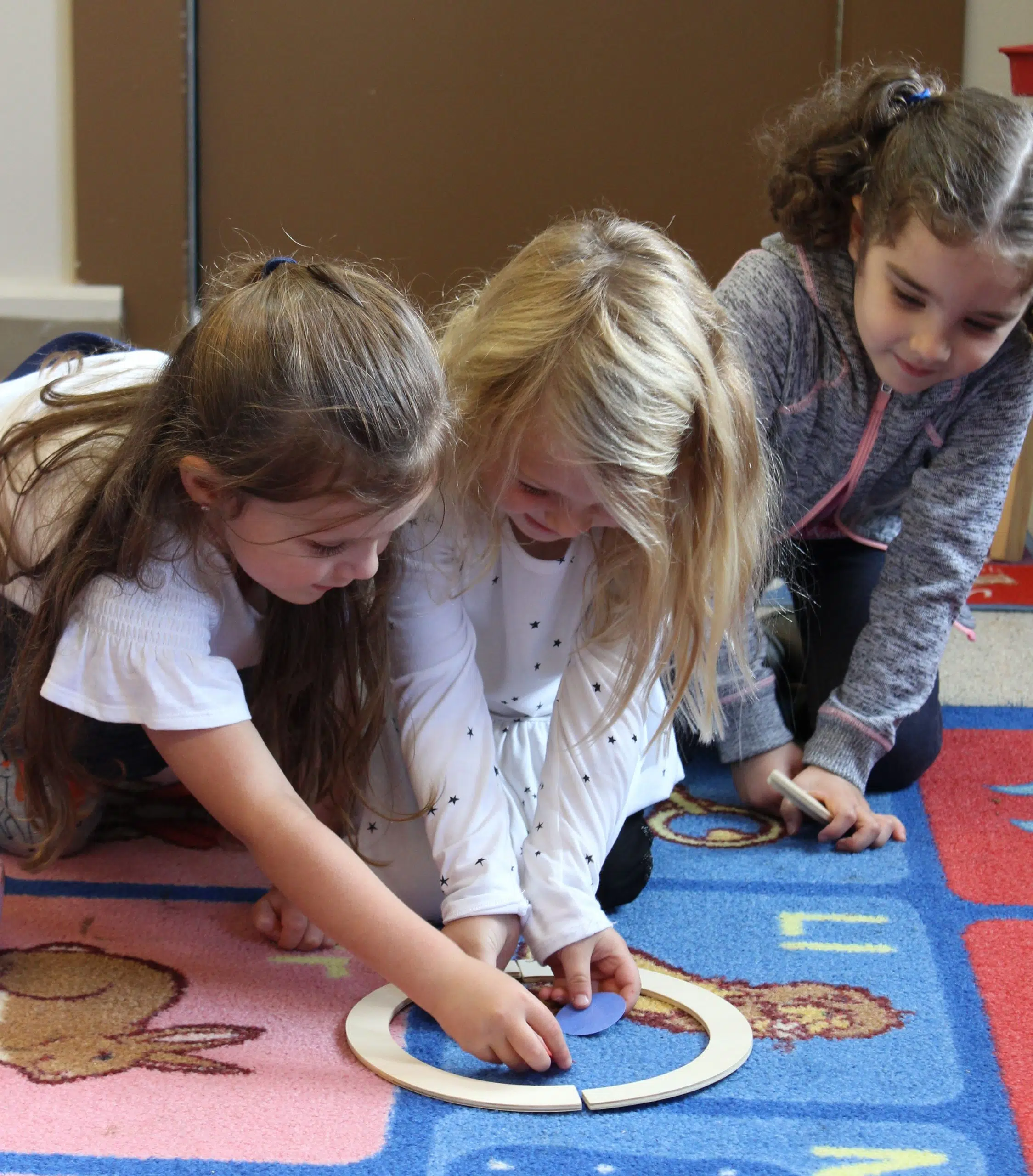
Credit: Bear Creek School
We can help young children begin to develop collaborative skills during play time beginning at about age 4. Age 4 begins the stage when children are interested in both with what they are playing as well as with whom they are playing.
Use play time to build relational skills such as taking turns, sharing, and giving and receiving input. Cooperative play with another is the first step toward collaboration.
Teach your child one relational skill (e.g. taking turns) at a time and encourage situations where he or she can be successful practicing the new skill.
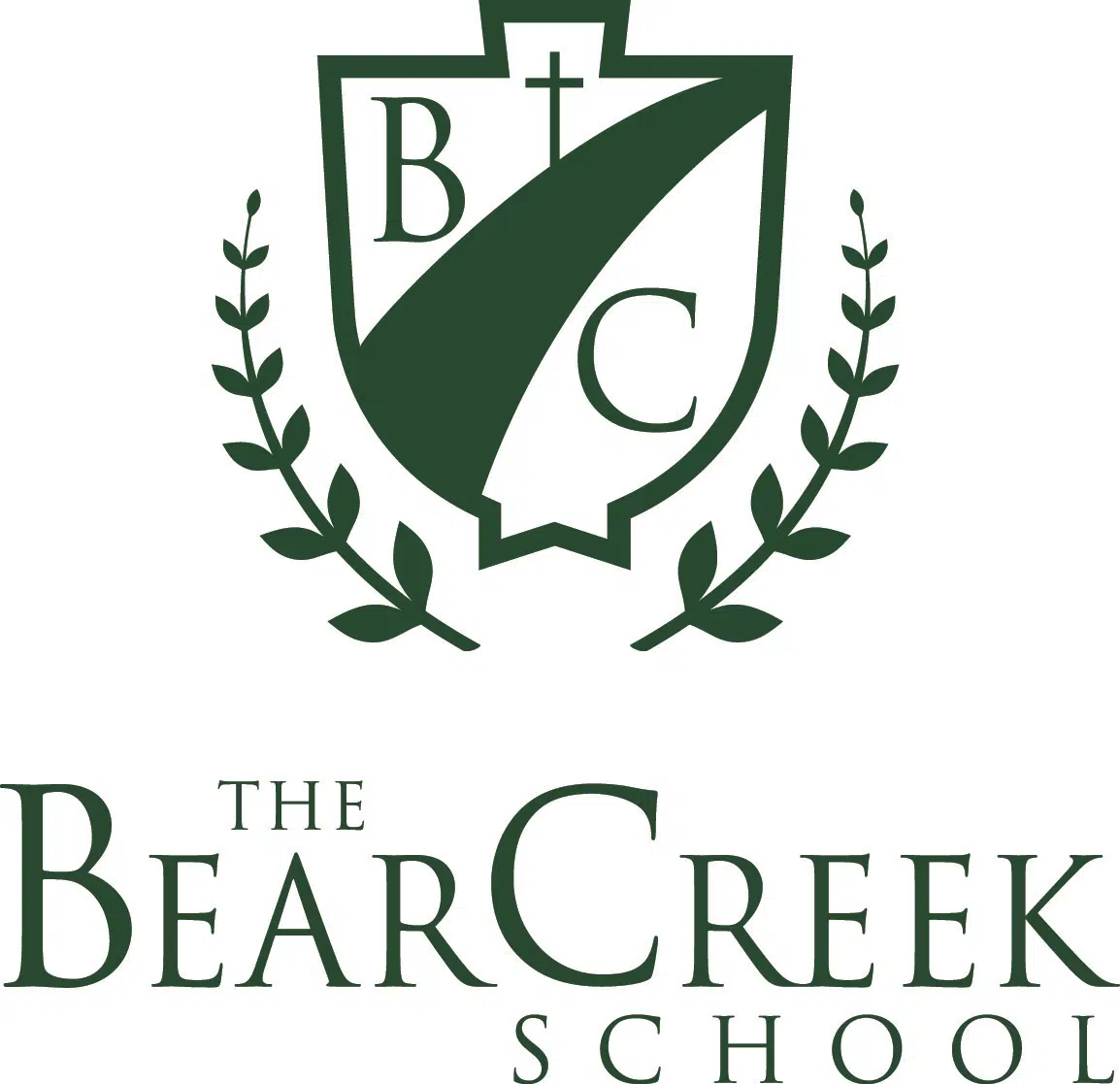 At The Bear Creek School, a Christian classical education serves as a powerful framework for teaching and inspiring students. It exposes students to quality by introducing them to the great minds, great works, great events, great discoveries, and great art of the centuries. We believe knowledge which endures is worth student attention; we believe studying minds of the past helps us understand and shape our future; we believe wisdom is developed by reflectively considering ideas in light of the Christian worldview.
At The Bear Creek School, a Christian classical education serves as a powerful framework for teaching and inspiring students. It exposes students to quality by introducing them to the great minds, great works, great events, great discoveries, and great art of the centuries. We believe knowledge which endures is worth student attention; we believe studying minds of the past helps us understand and shape our future; we believe wisdom is developed by reflectively considering ideas in light of the Christian worldview.
